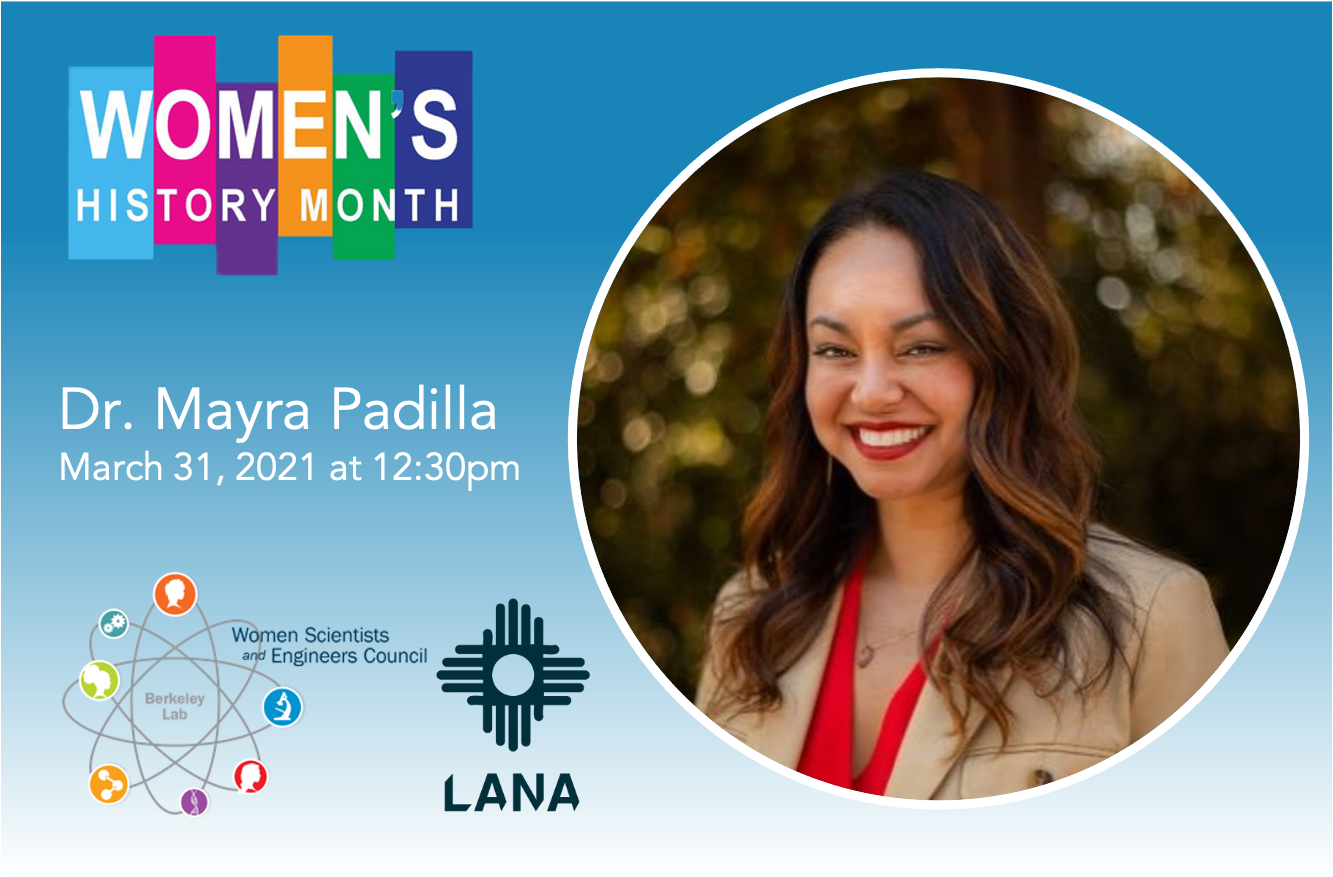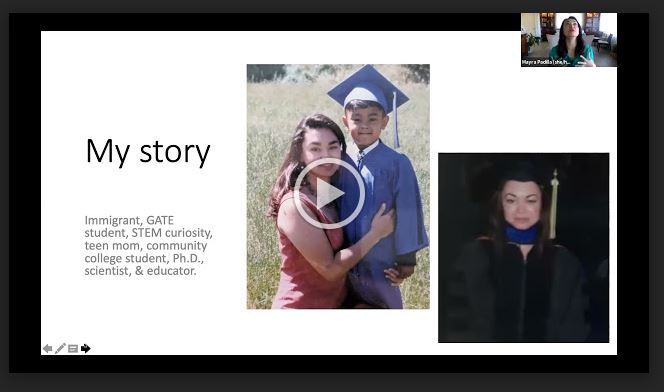 The Women’s Scientist and Engineers Council and Latin American and Native American Employee Resource Group are proud to co-host a talk by Dr. Mayra Padilla:
The Women’s Scientist and Engineers Council and Latin American and Native American Employee Resource Group are proud to co-host a talk by Dr. Mayra Padilla:
A different way of being and knowing: Nurturing the next generation of Black Indigenous Women of Color Scientists.
Date: Wednesday, March 31, 2021
Time: 12:30 – 1:30 pm
Dr. Mayra Padilla grew up in Richmond and San Pablo, California. She graduated from Richmond High School. Thanks to the support and mentorship she received through the Metas and the Center for Science Excellence programs at Contra Costa College (CCC), she successfully completed her bachelor’s degree in Applied Physics from UC Davis and her doctorate in Neuroscience from UC Berkeley.
Dr. Padilla worked as a neuroscientist at the San Francisco Brain Institute, SRI International, and Sands Research, Inc. As a result of seeing too few Latinx, Black, and women scientists, Dr. Padilla returned home to take on the role of director for the Hispanic Serving Institution (HSI) Science, Technology, Engineering, and Math (STEM) initiatives at CCC to encourage students to pursue careers in STEM.
Today Dr. Padilla is the Dean of Institutional Effectiveness & Equity at CCC. Under her leadership, CCC has been awarded two Department of Education HSI STEM grants and a Title V HSI Social Justice grant. To date, she has brought over $13 million dollars of external funding to CCC. Dr. Padilla has received numerous awards for her work at CCC including the Jefferson Award for Public Service, STEM Woman of the Year for Nancy Skinner’s Office, Contra Costa County Women’s Hall of Fame for “Building Community” and the San Francisco Foundation Koshland Civic Unity Fellowship. She was also featured in the SF Business Times Notable People. Most recently, the Hispanic-Serving Community Colleges STEM Pipelines (HSCC-STEM) study funded by the National Science Foundation identified CCC as excelling in STEM student success.

